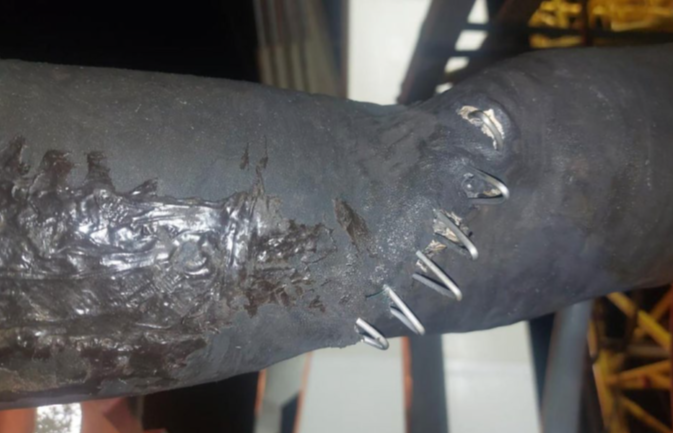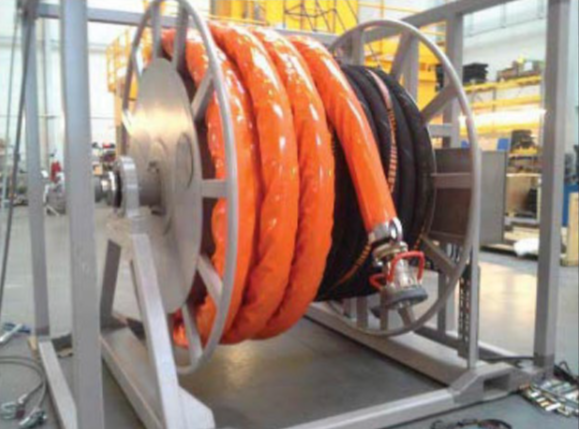Bunker hose damaged during connection
What happened
During offshore bunkering operations, the bunker hose was damaged when it was stretched. A vessel passed the bunker hose to the supply vessel using the crane. The crew of the supply vessel received the bunker hose and tied it off. The crew then noticed possible damage to the bunker hose. The hose was returned and upon inspection it was seen that the outer layer of the bunker hose was damaged. Bunkering was cancelled. The potential further consequences were a possible spill to the environment and delay in operations.
What went wrong
- Both vessels experienced moderate pitching and rolling due to sea conditions;
- The bunker hose was tied off to the supply vessel aft bollard while still connected to the crane on our members’ vessel;
- Due to both vessels moving in different directions, and the crane being unable to keep up with lowering or raising the hose in these conditions, the hose was stretched and damaged.


Lessons and actions
- Reviewed risk assessment for this task to identify risk of tying off bunker hose whilst still connected to the crane;
- Ensure that that standing orders for bridge communications include any special conditions between vessels –including not to tie off the bunker hose when connected to the vessel crane, if this can be avoided.
Members may wish to refer to:
Safety Event
Published: 16 July 2024
Download: IMCA SF 14/24
IMCA Safety Flashes
Submit a Report
IMCA Safety Flashes summarise key safety matters and incidents, allowing lessons to be more easily learnt for the benefit of all. The effectiveness of the IMCA Safety Flash system depends on Members sharing information and so avoiding repeat incidents. Please consider adding [email protected] to your internal distribution list for safety alerts or manually submitting information on incidents you consider may be relevant. All information is anonymised or sanitised, as appropriate.
IMCA’s store terms and conditions (https://www.imca-int.com/legal-notices/terms/) apply to all downloads from IMCA’s website, including this document.
IMCA makes every effort to ensure the accuracy and reliability of the data contained in the documents it publishes, but IMCA shall not be liable for any guidance and/or recommendation and/or statement herein contained. The information contained in this document does not fulfil or replace any individual’s or Member's legal, regulatory or other duties or obligations in respect of their operations. Individuals and Members remain solely responsible for the safe, lawful and proper conduct of their operations.
